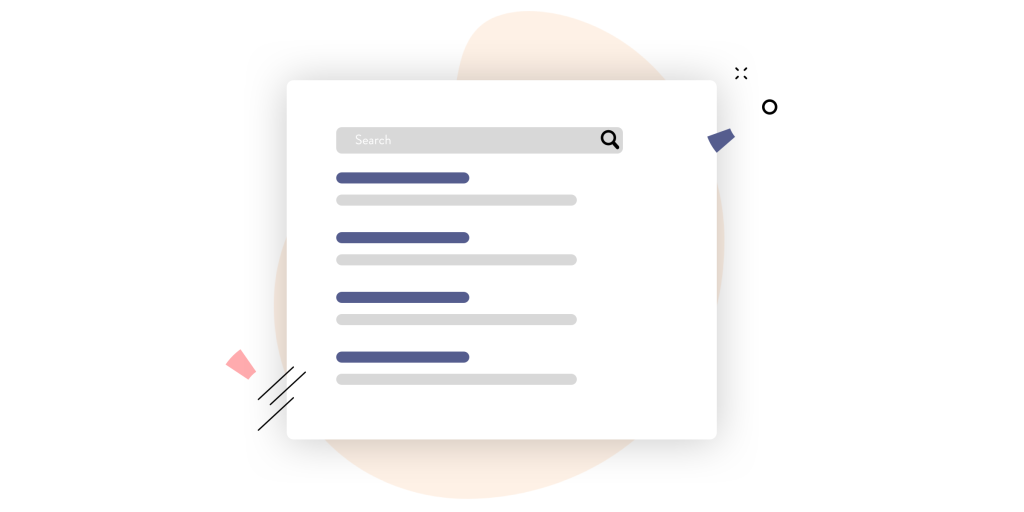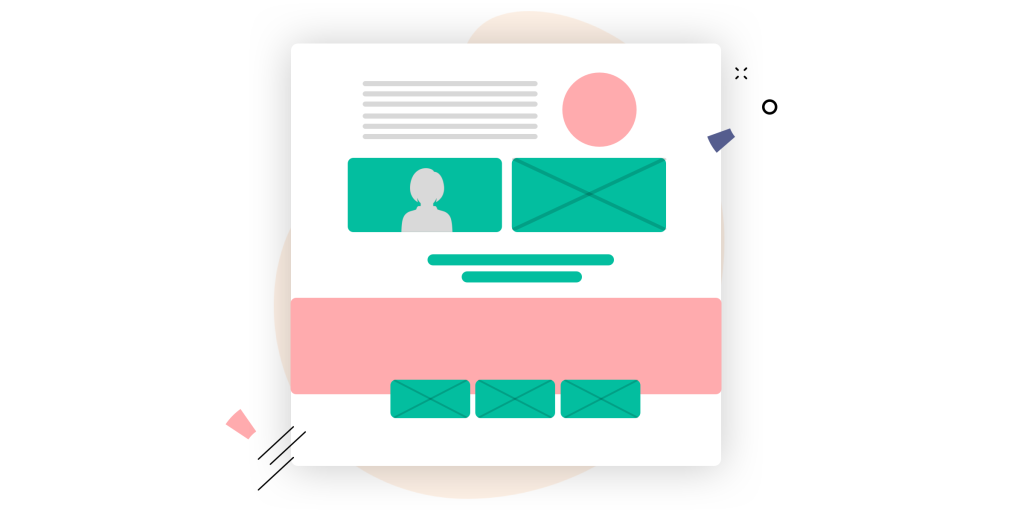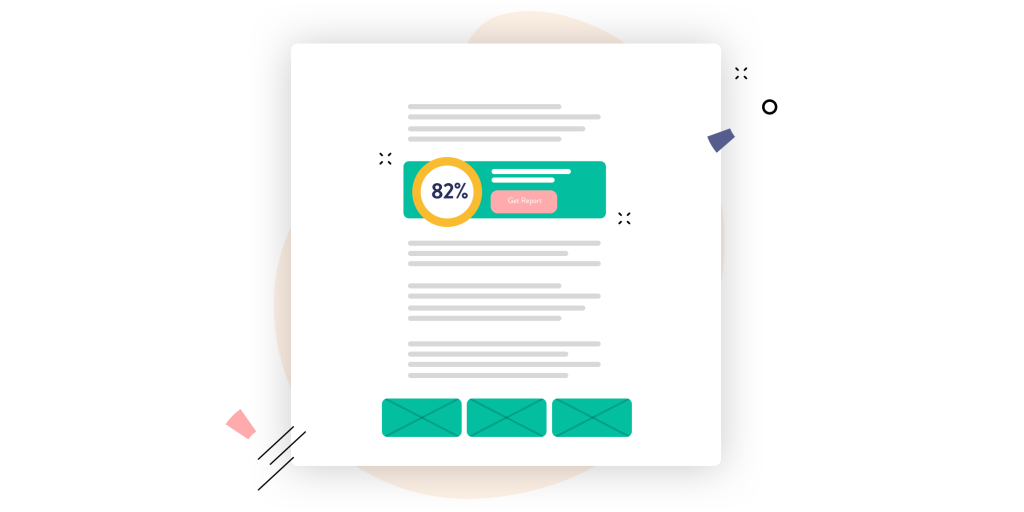Using SEO to promote your quiz funnel


If you’re looking to promote your quiz but you’re on a budget, then SEO could help. Search engine optimisation is one of the more cost effective ways to drive more visitors to your quiz.
A lot of people think that search engine optimisation is only a long term strategy, and although this is true, it’s certainly possible for you to see some results within a few short weeks!

In this article, we’re going to tell you exactly what steps you can take to optimise your quiz landing pages, so you can get more organic traffic and leads.
To make things easier, we’ve broken this article into three bitesize steps that you can do at your own pace. No technical skills required.
Do people actually search for quizzes?
Good question.
You might have dismissed SEO as a potential traffic source to promote your quiz because…well, who actually searches for quizzes?
Turns out…a lot of people. You just need to know where to look.
Take for example the phrase ‘how healthy am I quiz’, this is searched for 1700 times per month! Imagine getting in front of that amount of traffic with your quiz?
That would be nice, right?
Or what about the ‘money personality quiz’? No one searches for that surely? Actually, 950 people a month search for this!
What about something like, ‘rate my website’? It doesn’t say the word quiz, but delivers on exactly what a quiz should do. This gets searched for 830 times per month.
So, now that you know people are searching for quizzes, how the heck do you get your quiz to rank at the top of Google.
Here’s exactly how…
1. Do a little Keyword Research
Before you start taking any action with SEO, it’s a good idea to do some keyword research to find out what people are searching for on Google.
Keyword research will help you to identify the most popular keywords and show you how many people search for certain words and phrases on a monthly basis.

Below we’ve broken down a few steps you can take to collect some keyword data before getting started with SEO.
Think about the words and phrases that your ideal audience will be searching for online.
Write them down. Use your knowledge and experience to make a list of questions they might ask and words and phrases they may potentially use. This will act as a great starting point.
E.g. If you are a website designer, you might write down:
- How to get more leads from my website
- Why is my website not ranking on search engines?
- Website design tips
- How to write website copy
These are all search terms that your customers might search for online. Write down as many as you can think of for your industry.
Check the popularity of the search terms
Use a cheap keyword research tool like Keywords Everywhere ($10 per year) to view the popularity of your keywords.
Most keyword research tools allow you to view the number of average monthly searches. Using this information, you’ll be able to see which words and phrases are the most popular and which are the least.
Top Tip – Make a note of any other words or phrases you see that you might not have considered before. When you enter a keyword into any research tool, you will see a lot of other popular search terms. Write them all down and make note of the popular ones.
Keep adding to your list so that you have a long list of keywords that you know people are searching for online. Don’t worry if the numbers aren’t very big, just write them down so it gives you more options later.
Quiz related keywords
Once you’ve done the standard keyword research around your services, it’s now time to look into quiz related keywords. These are words and phrases that use the word quiz or those from people asking for an evaluation of some kind.
For example:
- Rate my [website/health/budgeting skills]
- [fitness/budgeting] Report
- [architecture] Quiz
- How good is my [marketing/fitness regime]
- Evaluate my [productivity/fiction writing]
- [home decorating] Score
This might take some trial and error but this data is worth its weight in gold. Make note of the average monthly searches and use these phrases on your website.
Now that you have a lot of keyword data, you can then use some of these search terms whilst implementing the rest of the tips within this article. Without the research you’ve just done, you’d just be shooting in the dark.
2. SEO for your quiz landing page
The next step is to optimise your quiz landing page. If you’re not sure what a quiz landing page is, it’s essentially the first page your user will land on before they take your quiz. It has the title of the quiz and information on what’s included and what you get when you fill it out.
Now, if you’re using quiz software like ScoreApp, you’ll already have access to our landing page software where you can easily edit the SEO settings.

If you’re using your own website as the landing page or an alternative software’s landing page, you’ll need to check you have access to edit the SEO settings..
By SEO settings we mean the following:
- Adding headings and sub-headings (these should be listed as heading 1, heading 2, heading 3 etc)
- Editing the URL/slug
- Adding a title tag
- Adding ALT text to your images
This is really important. A lot of quiz software does not allow you to edit the SEO settings of your quiz landing page and this can make it difficult for it to rank on search engines.
So once you’ve checked whether you can edit your SEO settings (and hopefully you can), you can then start to optimise your landing page using the best keywords. Without doing this, search engines will not understand what your page is about!
Here are some tips on how you can do this:
Use keywords in your slug/URL
If you haven’t already set up your quiz landing page, you’re at an advantage here. Create a URL that includes the keywords uncovered in your keyword research. If your audience are using search terms around the word “quiz” or “report” or “rate my” then use those, as your quiz will be EXACTLY what they are looking for.
Try to keep your URL to just 2-4 keywords maximum. And don’t waste it on words like ‘a’, ‘the’ or ‘it’ etc.
For example, for the website designer you could use the URL.
www.example.com/rate-my-website
This is more difficult to do if you’ve already set up your quiz and landing page and it’s live. Because, potentially, they’ll be lots of things already linking to it. But if you create future quizzes, do bear this in mind!
Edit your title tag with your keywords/phrases
Put simply, a title tag is a title for your web page. It tells Google exactly what your web page is all about. And that’s why it’s best you optimise it using your keywords. So in the example above for the website designer, you could name your title tag ‘Rate My Website | Website Traffic & Conversions Quiz’. Simple!
- Between 45-55 characters in length is ideal
- Try to include your main keyword once within the title tag
Use your keywords in your headings and sub-headings
When something is classed as a ‘heading’ this tells Google that this information is important and they should take notice. They will take the words in your headings to figure out what your page is all about. So if you include keywords and phrases naturally in your headings, this will help you rank.
When you write your landing page copy, you should use one main heading for the page which is usually the title for your quiz. You can include your keyword in their too. And include your keywords on other sub-headings on the page.
For example, in the case of the website designer it might look like this:
Main heading: Rate Your Website: How Good is Your Website Quiz!
Sub-headings used across the page:
- Learn how to get more leads from your website
- Leave with some actionable website design tips
- Understand why your website isn’t ranking in Google (and how to fix it)
You can see how we’ve weaved in some of the keywords and phrases from our keyword research above. Good, eh?
Also, you can do this within your copy too. Just try to vary up the phrases and don’t stuff too many in that it sounds weird (also known as keyword stuffing).
Optimise your images
Google can’t ‘see’ images the way a lot of website users can see them. Instead, it has to read the information that comes with them.
Optimising your images allows Google to understand what your images are about and the rest of the page too. More importantly, it’s also vital for accessibility. A lot of people struggle to see images online, so if you label them correctly they’ll understand what the image is meant to represent.

You can optimise your images by:
Keyword friendly file names
Don’t save your images as img_876.jpeg – because that doesn’t mean anything. Name them by using your keywords and phrases.
Use ALT text (Alternative text)
ALT text describes the image to those who are unable to see them, including Google. Use ALT text to describe what is in the image (don’t just stuff your keywords in there). Imagine someone pointing at the image and saying ‘what is that?’, you should answer that exact question with your ALT text.
For example, some ALT text might be “Website Design on Laptop Screen”
- Describe the image using only few words
- Try to include a relevant keyword
Reduce the size of your images
Before you upload your image to your quiz software (or anywhere!) you’ll want to reduce it in size. Heavy images can slow down your website (which is bad for user-experience and SEO!)
You can use a simple tool like TinyPNG to help with this. Simply upload your image and it’ll reduce the size for you.
3. Create blog content to rank your quiz higher
One of the best ways to drive organic website traffic is to create helpful content on your blog. According to a recent report by Wordstream, “Businesses that blog get 55% more website visitors than businesses that don’t.”
However, blogging can take quite a lot of time, this is why we’ve broken down a few articles you can create right now to help you drive more traffic to your quiz.

For these examples, we’ll use content suitable for a Financial Planner.
- 9 of the best tools to help plan for retirement
- The 6 key areas of finance to get right, so you can retire early.
- Common myths about when you should retire
A ‘best tools’ article, e.g. 9 of the best tools to help plan for retirement
The ‘best tools’ article can be used in almost any niche.
Within this article, you can list some of the most useful tools and resources that will help people achieve their goal. You will want to include your quiz at the top of the list and talk about how helpful it is. The other tools you include can be a mix of free and paid tools that will help your reader.
Explain what the tools are and how your reader might benefit from using them.
The ‘Categories’ Article e.g. The 6 key areas of finance to get right, so you can retire early.
If you use a software like ScoreApp, you’ll break down your quiz into categories and each participant will be scored in each category as well as given an overall score.
Those categories make for PERFECT content. They are unique to your business, and provide a framework to success.
For example, using the Financial Planning Quiz, the categories might be – bills, everyday spending, savings, income and unnecessary spending.
If you were to write a blog article based on these categories you could call it something like ‘the 6 key areas of finance to get right, so you can retire 5 years earlier than expected.’
You can then go onto explain each of the areas and why they are important. But most importantly, get people to take your quiz to find out how they score in each area.
The Myth Busting article e.g. Common myths about when you should retire
This article can help dispel any myths and potential objections people may have about your products or services.
This kind of article works well, as people love to find out what isn’t true. It’s the promise of discovering something new.
In the article you can then promote your quiz. This is a nice lead-in to the quiz as it convinces people your solution might work for them, and they can use your quiz to uncover more.
How to create a search engine friendly article to promote your quiz
We’ve already given you lots of tips on how to optimise your landing page, and these same tips can be applied to your blog articles too (or, any page, on any website, anywhere!)
But there are still extra things you can do on blog articles as well.
- Use a keyword-friendly slug/URL
- Include keywords in your main heading
- Include keywords in your sub-headings
- Include keywords in your title tag
- Write a compelling meta description
- Include keywords in your image file names and Alt text
- Link to your quiz from your articles
Each piece of content your create should follow the same method. SEO really does get easier in time and these simple steps above will ensure you you get high search engine rankings.
Link to your quiz in all your older articles
This is the easiest way to get organic traffic and rankings to your quiz. Update all of your old blog articles and link to your quiz–it’s that simple!

Especially articles that very much align with what your quiz is about. You can do this on podcast pages too, as well as across your entire website.
Feeling a bit more confident about SEO?
That’s good! SEO can feel a little daunting at first (because it comes across as technical). But with the right strategy, you could find yourself ranking for some really good search terms and getting in front of lots of people.
Finally, if you want to create a stand-out, scored quiz that delivers so much value to your user AND a lot of juicy data for you, then check out ScoreApp.





